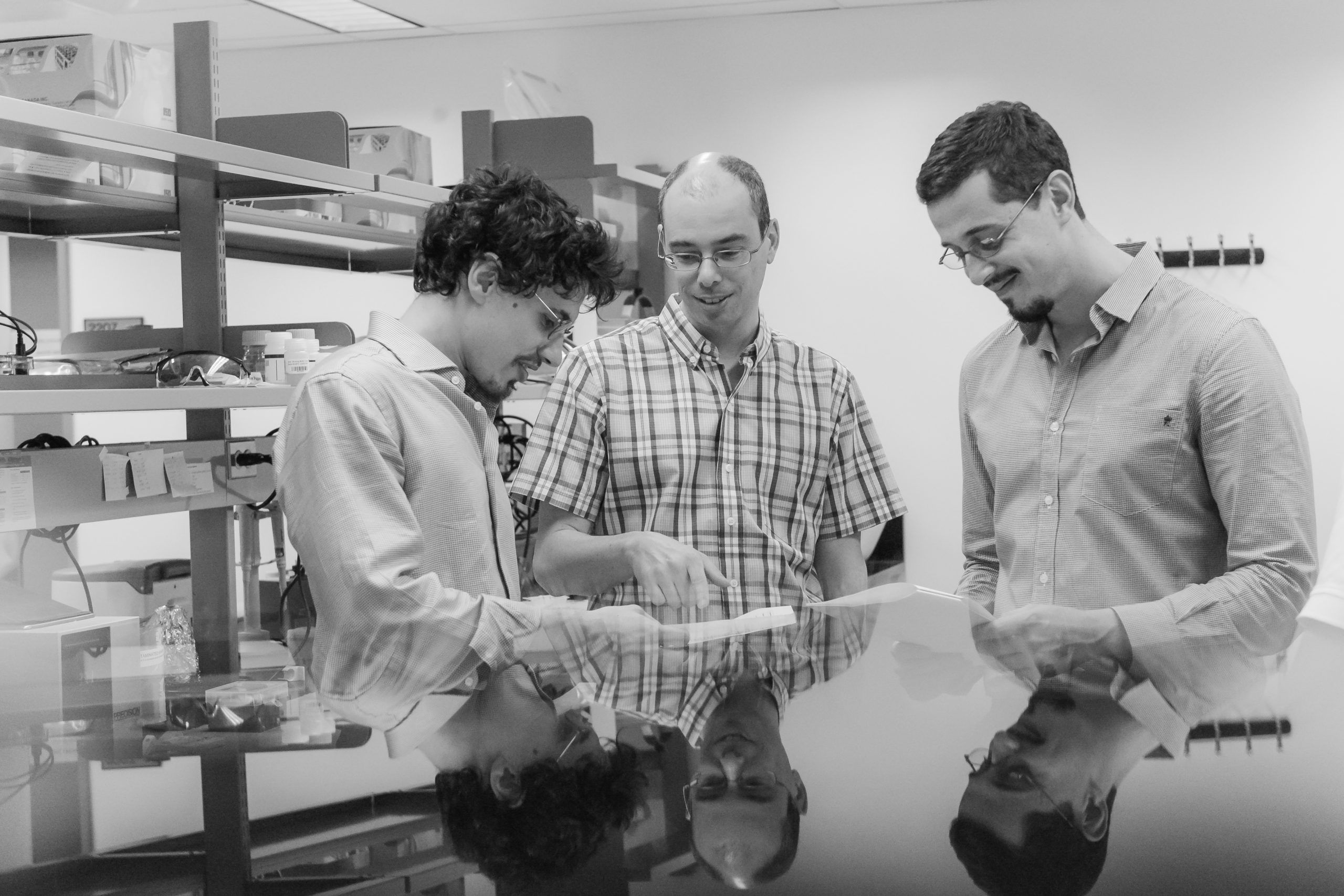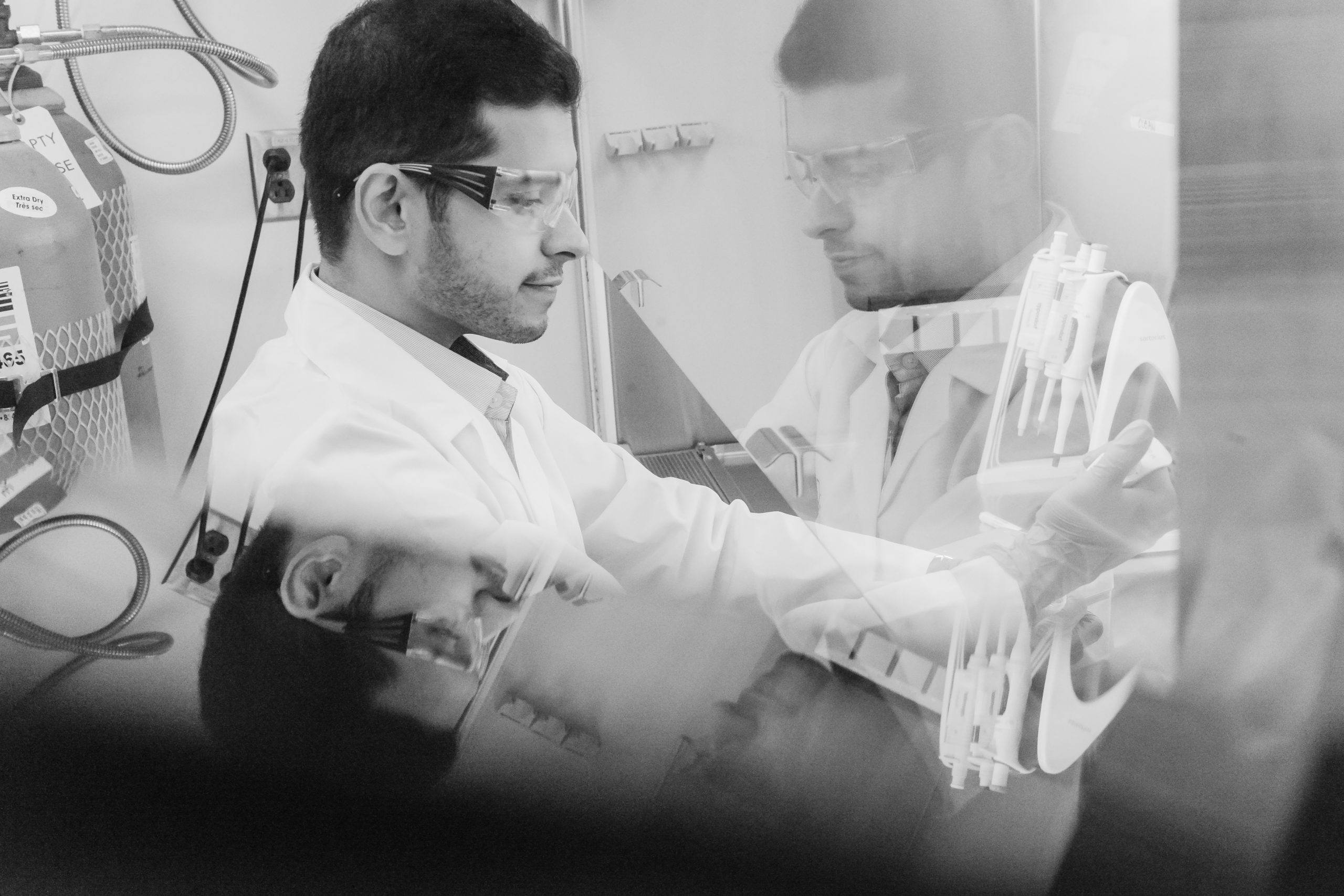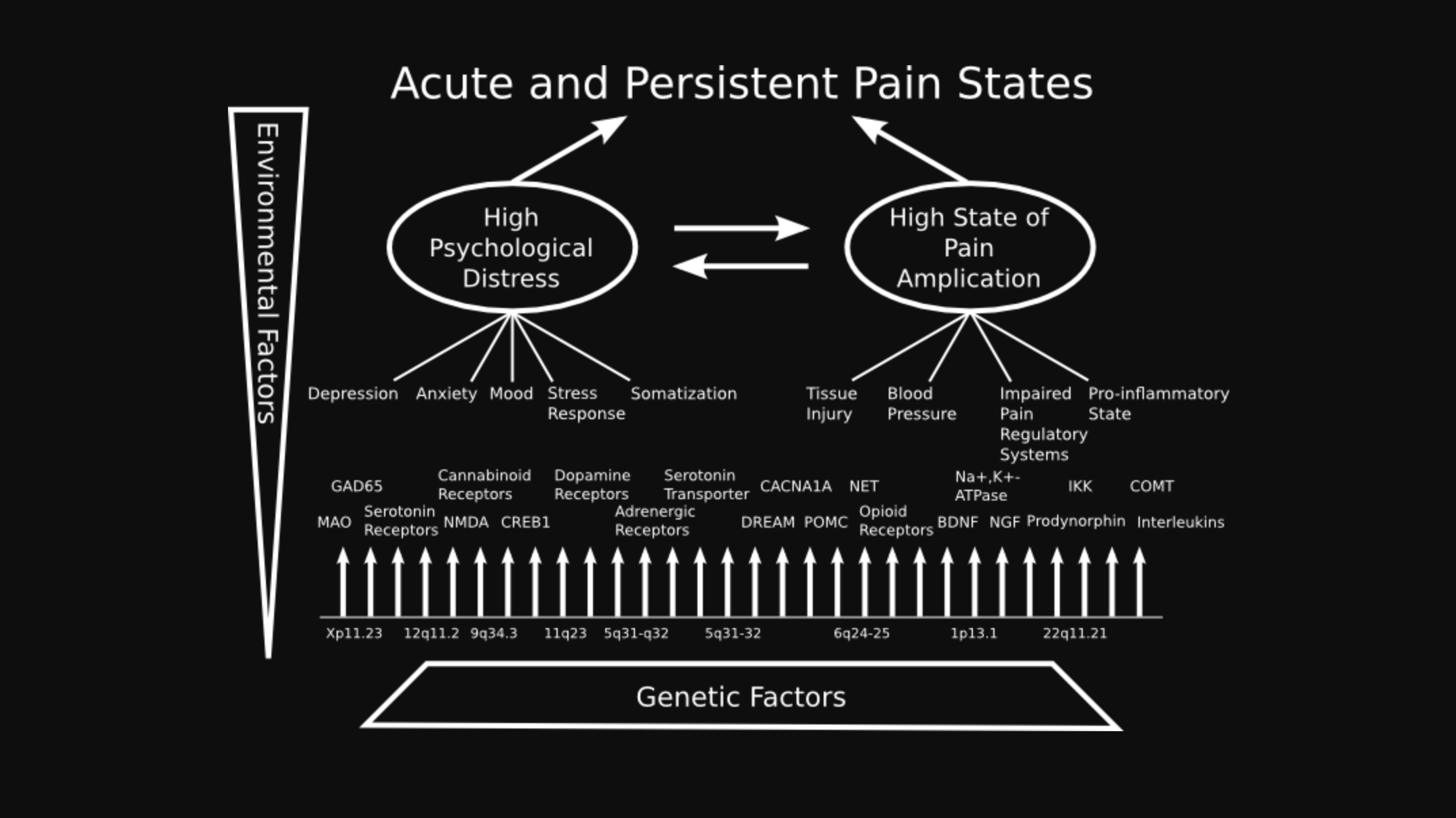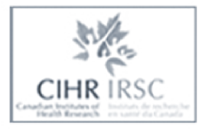
Persistent pain is part of many common human clinical conditions, yet the current ability to diagnose and manage these conditions is inadequate. Pain perception is one of the most complicated measurable traits, as it is an aggregate of other measurable phenotypes associated with peripheral and central nervous system dynamics, stress responsiveness, and inflammatory state. It is generally accepted that complex traits, like pain perception, result from the interplay between environmental exposures and multiple genetic variants. However, little is known about the nature of these genetic variants. Due to the established role of environmental exposures, and the common view that pain perception is an unquantifiable and subjective experience, a genetic basis for pain perception has long been questioned. Thanks to recent and rapidly developing discoveries in the field of pain genetics, there is now evidence for genetic background playing a substantial role in pain perception and clinical pain phenotypes. These findings provide unique opportunities to identify genetic variants that contribute to pain phenotypes. The development of genome-wide approaches assures global and unbiased assessment of these genetic contributions.
The Human Pain Genetics lab investigates the psychological, molecular, cellular, and genetic pathways that mediate both acute and persistent pain states. Our primary goal is to identify the critical elements of human genetic variability contributing to pain sensitivity and pathophysiological pain states that will enable individualized treatments and therapies.
Current research projects at the Human Pain Genetics lab include:
• Identifying critical elements of human genetic variability contributing to pain sensitivity and pathophysiological pain states through genome-wide approaches.
• Identifying SNP-dependent regulation of gene function underlying variability in human molecular pain signaling.
• Identifying ways to enable individualized treatments and therapies for human pain
Team

Xiang Ao

Francesca Montagna

Marc Bouffard

Marc Parisien

Sahel Jahangiri

Calvin Surbey
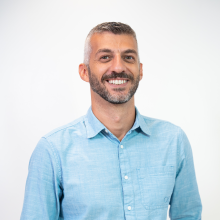
Mohamad Karaky

Lucas Vasconcelos Lima

Matthew Wong
Past Members
Rodrigo Benavides
Stefano Cattaneo
Anne-Julie Chabot-Doré
Ivan Chumakov
Kelly Cool
Khady Diagne
Maria Di Nezza
Pavel Gris
Hao Huang
Arturo I. Machuca Parra
Sarah Jane Martinez
Samar Khoury
Richard Klares
Ryan Lichtenwalter
Carol Meloto
Meijuan Niu
Lorenna Oliveira Fernandes de Araujo
Anahita Oveisi
Marjo Piltonen
Lisanne Plein
Alexander Samoshkin
Julia Segal
Xia (Shawn) Wen
Yerkebulan Talzhanov
Adam Trefonides
Nicol Tugarinov
Sonali Uttam
Vivek Verma
Maria Verner
Abdul Wahab
Natalie Zacchia
Maha Zidan
Katerina Zorina
